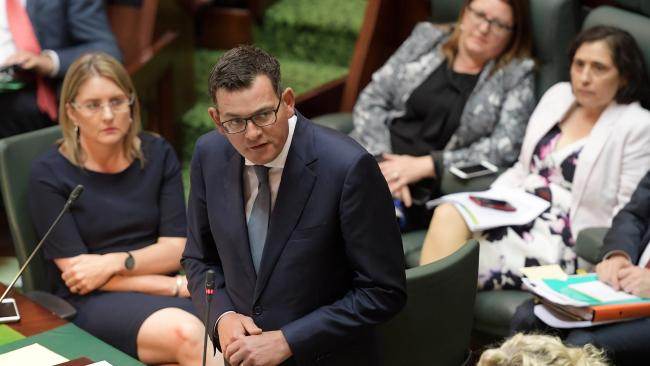This report is part of the Evidence Based Policy Analysis Project administered by the newDemocracy Foundation, through which Per Capita was commissioned, alongside the Institute of Public Affairs, to provide analysis of a number of Australian policies introduced at a state and federal level over the last three years.
Click here to download the newDemocracy Foundation’s media release.
The Project set out to address the problem that policymaking in Australia is falling short of best practice. Policies are often built “on the run” as quick reactions to the political issue of the day, designed to capture the interest of the 24-hour news cycle or motivated by short-term political advantage. This can result in failed policy implementation and poor results for citizens, politicians, and society at large, especially when it undermines public confidence in policymaking.
The Institute of Public Administration Australia (IPAA) 2012 discussion paper Public Policy Drift argued that governments must replace “policy on the run” with a “business case approach” to address the “sense of crisis in the policymaking system”. This approach would involve designing policies based on evidence, consultation, analysis, and debate. The paper outlined a business case approach based on Professor Kenneth Wiltshire’s Ten Criteria for a Public Policy Business Case and analysed 18 federal policies against that criteria, finding that only eight satisfied these standards for policymaking.
In 2018, the newDemocracy Foundation commissioned two think tanks with different ideological leanings – Per Capita and the Institute of Public Affairs (IPA) – to repeat the analysis, ranking 20 recent high profile policies (eight federal, and four from each of New South Wales, Victoria, and Queensland) against the Wiltshire criteria. Per Capita and the IPA chose the case studies together to avoid political bias and agreed on the following:
For a policy to meet the Wiltshire criteria, it needs to score more than 5 out of 10. Of the 20 policies we analysed, we found 11 had met the Wiltshire criteria, while 9 failed. This shows that although there is high quality policymaking in Australia, especially at the state level, policymaking still often falls short of the best practice the public should expect. Notably, all of the Victorian state government policies we assessed met the Wiltshire criteria.
On Per Capita’s assessment, the policies that passed the Wiltshire test were:
- VIC: Access to Medicinal Cannabis Act 2016 (9/10)
- VIC: Voluntary Assisted Dying Bill 2017 (9/10)
- QLD: Legalising ride-sharing apps (9/10)
- FED: Commonwealth Electoral Amendment Bill 2016 (8/10)
- NSW: Criminal justice reforms (8/10)
- NSW: Greyhound Racing Prohibition Bill 2017 (7/10)
- VIC: Advancing the Treaty Process with Aboriginal Victorians Act 2018 (7/10)
- FED: National Energy Guarantee (6/10)
- FED: Future Submarine Program (6/10)
- VIC: Climate Change Act 2017 (6/10)
- QLD: Tackling Alcohol-Fuelled Violence Act 2016 (6/10)
The policies that failed the Wiltshire test were:
- FED: Abolition of 457 visa (5/10)
- FED: Enterprise Tax Plan 2017 (5/10)
- QLD: North Queensland Stadium (5/10)
- FED: Broadcasting Reform Bill 2017 (4/10)
- NSW: Fire and emergency services levy (4/10)
- QLD: Vegetation Management Bill 2018 (3/10)
- FED: Australian Marriage Law Postal Survey (2/10)
- FED: Creation of Home Affairs department (2/10)
- NSW: Local council amalgamations (2/10)

